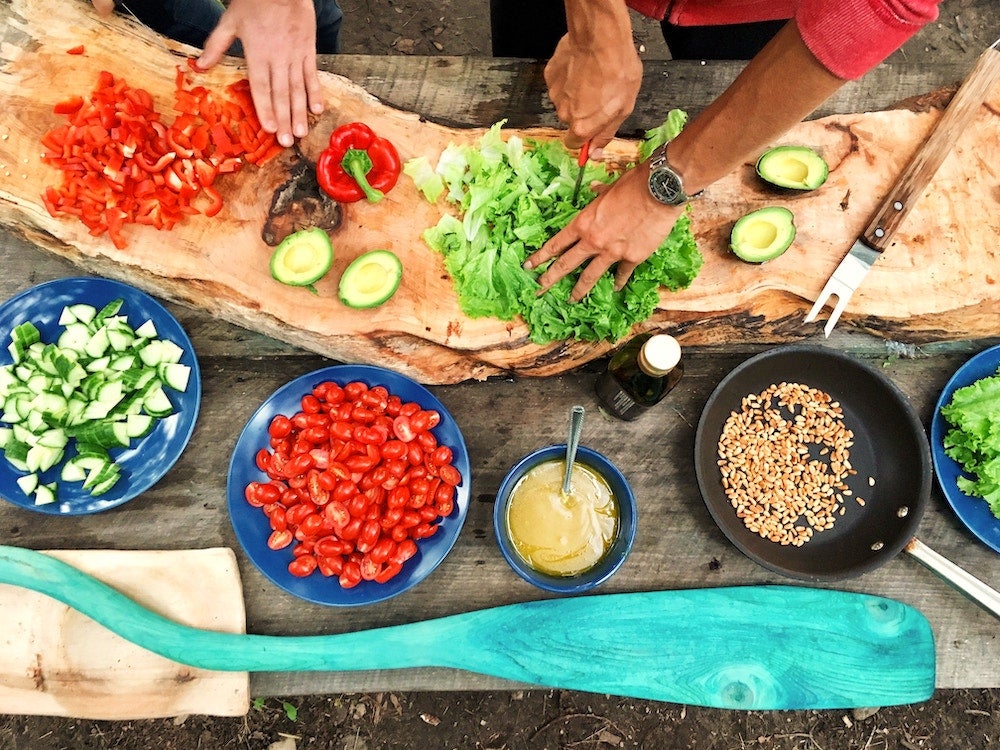On World Sustainable Gastronomy Day, platforms such as #SinDesperdicio and the Social Gastronomy Movement make collaborative work at the center of their strategy.
*By Nicola Gryczka
Today, June 18, is Sustainable Gastronomy Day, a United Nations-designated day of observance of those using gastronomy sustainably to create a better and healthier planet for everyone. Sustainable Gastronomy Day recognizes the importance of food as a cultural expression of our global diversity and showcases the importance of cultural respect and environmental sustainability in cuisine. This day is especially important for us at the Social Gastronomy Movement (SGM) because it highlights what our movement has long recognized: that connecting through food is the best way for communities to support each other.
Launched a little over years ago at the World Economic Forum in Davos, Switzerland, the SGM is composed of organizations working all along the food system, from harvesting and sowing crops to manufacturing and serving meals to recycling food waste, in order to improve lives around the world. We advocate for positive changes in local food systems so that together we move toward global progress. Our base of partners and existing organizations operate in 38 countries across five continents, from Brazil to Switzerland, from Turkey to the United States, from the United Kingdom to Colombia, and many more.
SGM cultivates connections, collaborations, and partnerships that strengthen our individual and collective capacity to co-create an equitable future, an inclusive society, and a healthy planet. Just an example: As a result of the SGM’s COVID-19 Virtual Roundtable on Food for All – which brought together around 50 community leaders in Spanish-speaking countries to find creative and practical solutions to continue providing food to those in need during the health crisis – a new collaborative effort has been launched in Chile.
Comida para Todos (Food for All in English), the name of the campaign and solidarity platform, is made up of social organizations, restaurants, small producers, and citizens with the purpose of ensuring quality food to those who need it the most. Launched on May 15, the group has activated seven restaurants in five different communities across Chile, collecting food donations and delivering almost 20,000 lunches so far to vulnerable populations. Every delivered meal has four main ingredients:
- Good food: from small producers, cooked by restaurants that, due to the pandemic, are experiencing the worst crisis in their history. In this way, the construction of dishes based on their nutritional values and quality is an intractable pillar.
- Employment: every dish we serve creates jobs, working with cooks and producers that currently face high levels of unemployment. We revive restaurants and provide inspirational tools in times of sadness and economic difficulty.
- Education: we want to create permanent education spaces in the social dining rooms that each restaurant sponsors to transfer culinary knowledge, healthy eating education, and entrepreneurship education.
- Community: our plate of food is conceived together with the communities, working with them on the ground, and forging social fabric. We seek to unite through food.
This is just one example of the power of connection and collaboration. As we enter the next phase of the Movement, our sights are firmly fixed on furthering these kinds of collaborative partnerships. We believe that the most effective way of achieving our goals is by working together to co-create institutional change. This is why we welcome collaborative initiatives such as #SinDesperdicio, which is changing the way we tackle food waste in Latin America and the Caribbean. We always go the farthest when we work in partnership. And we make the most impact when we are working together to hit a common target.
*Nicola Gryczka is the co-founder and chief orchestrator of the Social Gastronomy Movement. In celebration of Sustainable Gastronomy Day launched the SGM Food Solidarity Fund. This fund is an extension of the #SGMSolidarityChain initiative (Instagram) which addresses the effects of COVID-19 worldwide and was made possible by joining forces with The World’s 50 Best Restaurants. This initial funding gives SGM the resources and opportunity to start supporting local communities to bring food and support to the most vulnerable in their communities.


Leave a Reply